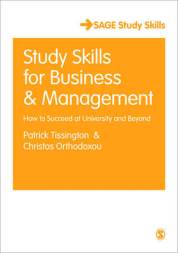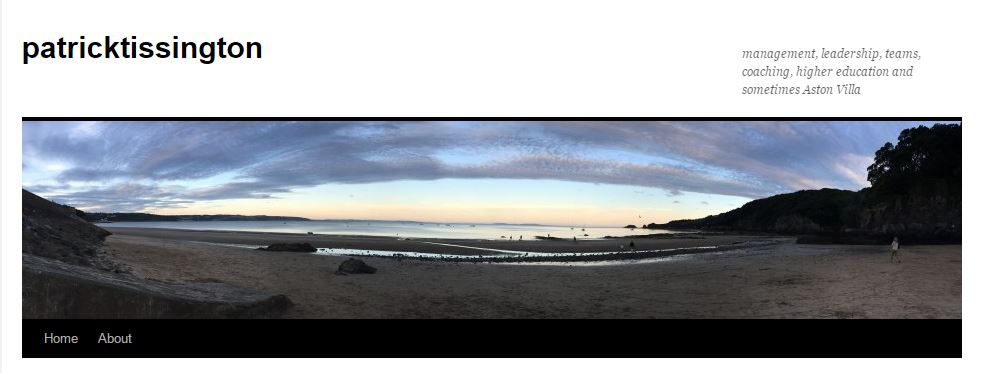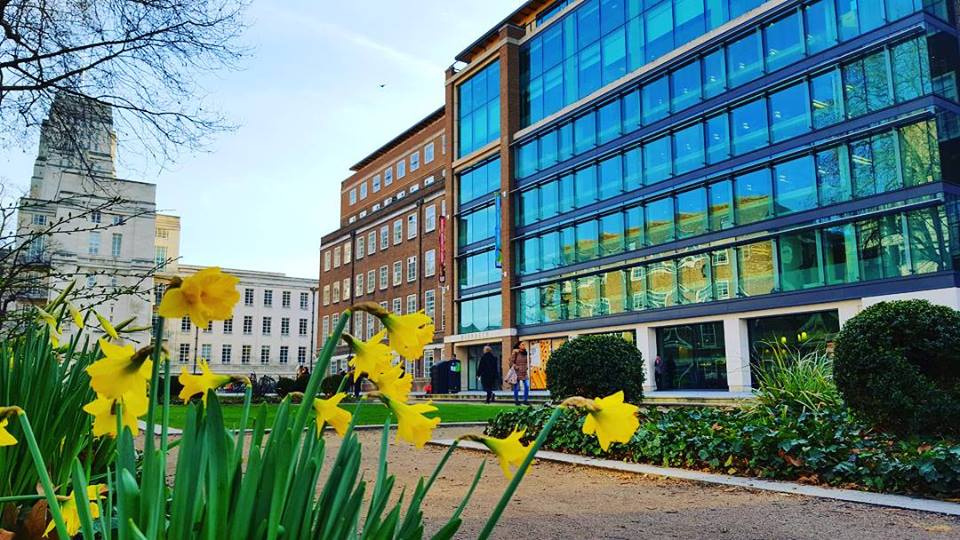This post was written by Professor Patrick Tissington, head of Birkbeck’s Department of Organizational Psychology. Here, Professor Tissington offers advice to new students beginning their courses all over the UK and beyond on how to get the most out of the university experience. this article first appeared on Prof Tissington’s blog on September 12 2016.
And so it’s the time of year when thousands of students embark on the Great Adventure that university is. Having had the privilege of tutoring students through this transition for nearly twenty years, I wanted to share my experience to help with this important and exciting time. In this blog, I will cover how to approach the start of your university career. Further blogs will top you up as you go.
The points I am going to make are summarised as:
- Join in
- Balance
- Find the right job
- Begin with the end in mind
Join in
All the evidence points to students who do well, enjoy their time at university and get the most out of it are the ones who feel part of the university in a very personal way. These days all institutions have vast arrays of clubs and societies for their students which are usually supported financially. So there are so very many options for interests you can pursue outside of your studies and they will be far cheaper than you can find elsewhere. It might seem odd for me to start by telling you to look for things to do outside of lecture time, but it is with good reason. Look for the ones that seem most fun to you. If you played hockey at school, you might want to carry this on and make a bee-line for like-minded hockey folk. On the other hand, going to university is a chance to reinvent yourself and you could decide that you don’t want to be known as a hockey player any longer and want to try rock climbing, chess or ballroom dancing. Even if you aren’t sure, join several clubs and see which ones you want to carry on with. But make sure you do keep at least one going. It is your way to get to know people outside of your course and will broaden your experience. There could be opportunities to put it on your CV but that really shouldn’t be your driving force. University is a time to broaden your mind in all kinds of ways, so make the best of the very many opportunities available to you.
Oh, and yes I do realise that these days with the fees, you will have in mind always what you are going to do for a living when you graduate. But my experience is that those who have an open mind frequently find they gain far more benefit than those who just focus on building an interesting CV. Do make sure you are doing things that interest, challenge and entertain you. Perhaps do things that frighten you a bit!
As I said at the start, there is a hard headed rationale for this advice. If you are part of a club, you will feel more involved in the university. This means you are far more likely to do as well as you possibly can in your studies. And believe me, the experience of being at a university that you feel involved with is something that stays with you for life. Personally I spent time working for the student magazine when I was an undergraduate at the University of Westminster. This gave me free CDs, free entry to gigs and friendship with people across the university. I loved it! I also joined the mountaineering club but that didn’t actually suit me in the end. So don’t be afraid to drop something if it isn’t working out. But don’t be flakey. Pick one or two things that you are going to do and throw yourself into them.
Balance
The start of university is one of the very few times in life when you are able to just go up to someone and start talking to them. This can be intimidating to do at first but remember that despite appearances, pretty well everyone will be feeling the same way so dive in and meet people.
But don’t feel you have to go to EVERY party. I have seen time and time again students get carried away by freshers week and carry on partying for weeks and suddenly find it is exam time and they haven’t prepared. You must always remember the core reason of being at University – learning. And yes I did say learning and not getting a good degree. If you set out to learn everything you can about your subject, all the things about study, exams and getting a job will fall into place. So work on balanced approach. If you have been out socialising more nights than not, you need to take a long hard look at why you have gone to university. This will not be sustainable either financially, physically or in the end, educationally. So have the guts to say no to invitations sometimes.
Find the right job
My aim is to provide advice that will be relevant to all students who are starting at University this year. However, I work at Birkbeck, University of London where the majority of our students have been working for a while. So, some of the following might be less relevant to some of them.
I worked my way through university but at the time, this was rare. But for you, unless you are very lucky, it is inevitable. So think again about balance. Find a job that will give you what you need in terms of pay but also isn’t going to be so tedious or stressful it will affect your studies or your enjoyment of life. Of course you need to be realistic and you aren’t going to find a job that gives you flexible hours and pays you large amounts of money to do fun things. But also remember what your value to an employer might be. As an intelligent, resourceful person, you might find there are ways of building from a basic bar job into something more interesting and better paid. People I knew worked in betting shops and found great ways of increasing responsibility and being better paid. Others did out of hours admin. As for me, I ran a market stall, trained as a tour guide and was in the Army Reserve. I don’t recommend you follow my example exactly as these aren’t exactly normal things to do, but hopefully you get the point about being creative when it comes to earning money. Of course the ideal is to have a job which will help you when you leave.  Supermarkets for example have very good management training programmes and will look very favourably on any shop floor experience you have had. Anything that needs you to deal with the public or manage staff will be really useful. Be creative in your ways of earning. I know one student who is paying her way by buying things from charity shops and selling them on eBay for a profit. She has backup plans having qualified as a life guard and experience as a barista so there are options available to her.
Supermarkets for example have very good management training programmes and will look very favourably on any shop floor experience you have had. Anything that needs you to deal with the public or manage staff will be really useful. Be creative in your ways of earning. I know one student who is paying her way by buying things from charity shops and selling them on eBay for a profit. She has backup plans having qualified as a life guard and experience as a barista so there are options available to her.
 But the balance idea comes in again. I have seen people get so engaged in their part time job, it has encroached on their studies. This is a bad mistake. Scrimp and save so you have to work less to support yourself rather than taking extra shifts to buy clothes.
But the balance idea comes in again. I have seen people get so engaged in their part time job, it has encroached on their studies. This is a bad mistake. Scrimp and save so you have to work less to support yourself rather than taking extra shifts to buy clothes.
And a word of warning as there is also a life lesson to be learned. Things that look too good to be true usually are. That is, offers to make easy money are usually scams. You will need to work for your money. But it is all good experience. I firmly believe that no work experience is wasted so labouring on a building site, working in a call centre or shelf stacking all give real insights into the word of work as well as providing much needed money to support you as you study.
Begin with the end in mind
And my final advice for this first blog is one that comes from Stephen Covey’s excellent “Seven habits of effective people”. Think long and hard about what you want to have achieved when you graduate. Be really really specific about it. What do you want to be thinking and feeling as you walk across the platform to receive your degree? Do you want to be sure that you have landed the graduate job? Do you want to have got the best marks in all subjects that you possibly could have? Do you want to be looking back on your time at university as a time of fun, learning and growth? Spend time writing this down. Visualise exactly what you want to feel on that day.

Having done this, now plan backwards. How will you achieve these feelings? What do you need to have done in the final year to achieve this? What in the second year (or third too if you are studying for four years)? What in the first year? And so what do you need to do this first term? No really. What do you need to do this term? And by half way through the term? By the end of this month? So what do you need to do this week. Write it down. This is an absolute must. By writing things down we make them more formal and we are far more likely to actually do them.
So that’s it. The key to a successful university experience is balance. Don’t overdo the work but don’t under do it. Do have a social life but don’t over-do it.
I will be back in a few weeks with tips on how lectures are different from lessons. How to get the best out of your lecturers and many other things. But if you would like to get the full details about all my advice, then it’s in a book.
I wrote it with a former student who, despite being the first person in his family EVER to go to university, he got a first AND had a great time. His motivation for writing the book was that if he could do well at university, everyone should learn from his experience so anyone could achieve. I too struggled to find out what I was supposed to do at university and only really stumbled across the way of succeeding just before my finals. We both want to help students get the best out of university. And not only from their studies.

Read this article on Professor Tissington’s blog
Find out more













